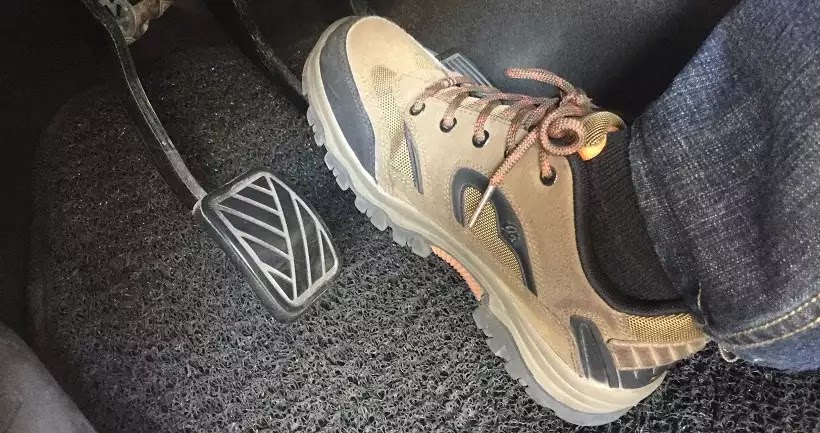If the brake pedal vibrates only during very heavy braking and if the car has an anti-lock brake, pedal vibration is not a problem, but a normal condition for anti-lock brakes.
The reason why the brake pedal vibrates while applying brakes
(1) Misalignment between front pads and discs.
(2) Misalignment between rear shoes and drum.
Car troubleshooting
As indicated, the only time the pedal vibrates is during heavy braking. As indicated if the car profile has anti-lock brakes. Anti-lock brakes work by rapidly applying and releasing the brakes during heavy braking in order to prevent wheel lockup. This applying/releasing action is felt in the brake pedal as vibration. There is nothing to worry about since this is normal with anti-lock brakes.
What to do?
Do nothing. No Remedy Necessary.
However, if the brake pedal vibrates not only during very heavy braking but there is also vibration coming from mainly the front end then misalignment between front pads and discs is causing the problem. OK, very briefly, the front end and front brakes are sort of "tied" together. Since the front end vibrates while braking, the problem must have something to do with the front brakes, right?
What is happening in the front pads and discs are not in even contact when braking (i.e. misaligned); this will result in vibration. The most likely cause of this misalignment is warped front discs. However, it is possible that the discs are OK but rather the front wheel bearings are worn/loose. This would indirectly cause misalignment between the pads and discs.
What to do?
Take the car to a reputable garage (AAA garages are recommended) and ask the mechanic to first check the front wheel bearings for wear or looseness. If the bearings are OK, you'll need to have the front brake discs machined to correct their warpage. Now, after the discs are corrected, the old pads may not "mate" or align well with the newly machined discs. So, you should replace the front pads as well.
However if during braking, there is no vibration coming from mainly the front end, then misalignment between rear shoes and drums is causing the problem. While braking, the pedal vibrates but there is no vibration coming from the front end. This generally points to a problem with the rear brakes (shoes and drums in the case of this car).
What is happening in the rear shoes and drums is not in even contact when braking (i.e. misaligned); this will result in vibration. The most likely cause of this misalignment is warped rear drums. However, it is possible the drums are OK but rather the rear wheel bearings are worn/loose. This would indirectly cause misalignment between the shoes and drums.
What to do?
Take the car to a reputable garage (AAA garages are recommended) and ask the mechanic to first check the rear wheel bearings for wear or looseness. If the bearings are OK, you'll need to have the rear brake drums machined to correct their warpage. Now, after the drums are corrected, the old shoes may not "mate" or align well with the newly machined drums. So, you should replace the rear shoes as well.





Share with us what you think about this topic to provide another reader more information that this article should have covered.